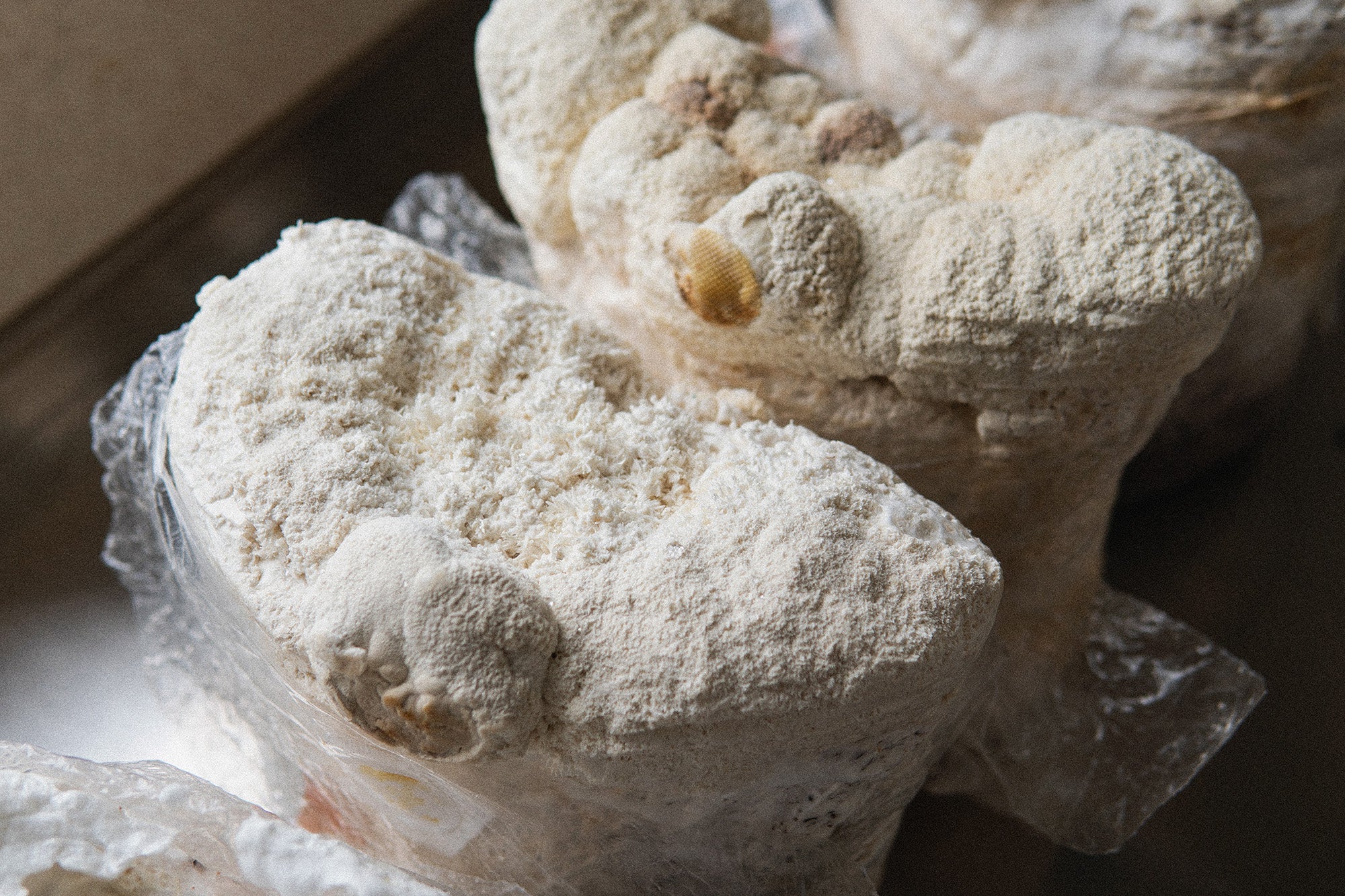
A Brief History Of Lionʼs Mane Powder & Its Impact On Health
The reasons behind why this darling of Eastern traditional medicine has become so popular in the West.
Thereʼs a saying in the culinary world – what grows together goes together. Eggplant, tomato, and zucchini work perfectly in a summertime ratatouille. Squash and sage in a winter risotto.
Thereʼs another folk idea that hints at mother natureʼs own intelligence far surpassing our own: That some foods actually look like the organ or body part theyʼre intent on supporting. Tongue-like sage is said to have a beneficial effect on oral health. Cerebellum-like walnuts are rich in omega-3 fatty acids, which are crucial for brain health.
Squishy lionʼs mane looks a bit like a brain, weʼd say. But who first discovered its health benefits and how did lionʼs mane powder become so popular?
The History Of The Lionʼs Mane Mushroom
Lion's mane mushroom (Hericium erinaceus) is a well-regarded medicinal and culinary mushroom easily identified by its white, shaggy, beard-like appearance. Hericium erinaceus can be found growing on oak, beech, and maple trees. As it grows, this mushroom resembles a lionʼs mane – hence the name. (“Erinaceusˮ is also a reference to this mushroomʼs unique appearance – "erinaceus" is a genus that includes hedgehogs.)
Lionʼs mane has been used in Traditional Chinese Medicine for hundreds of years, where itʼs known as Hou Tou Gu.
Itʼs revered as a culinary delicacy. It's got a unique fibrous texture and slightly fishy, umami flavor which makes it suitable as a meat or seafood substitute in creative vegetarian dishes. (Weʼve seen recipes for lionʼs mane “crabˮ dip, lionʼs mane pulled “pork,ˮ and lionʼs mane rangoons floating around the internet).
What Is Lionʼs Mane Powder?
Lionʼs mane powder is a natural supplement made from the dehydrated ground fruiting body of a lionʼs mane mushroom. Traditionally, lionʼs mane powder (or Hou Tou Gu) was enjoyed in broths, teas, or soups.
If you've ever been to an acupuncturist, chances are theyʼve got a jar of lionʼs mane powder sitting on the shelf of their apothecary. (Acupuncturists are often licensed in Traditional Chinese Medicine, which includes the study in and application of Chinese herbs for medicinal purposes). The Chinese learned early on that mushrooms could store better when dried, which allowed for easier transportation, making them a more accessible and convenient natural remedy.
Lionʼs mane powder has become more commercialized in recent years as people across the globe have begun to catch on to its benefits. Powder form is a particularly easy, convenient way of enjoying the health benefits of Lionʼs mane.
Lionʼs Mane Powder In Traditional Chinese Medicine
In Traditional Chinese Medicine, Lionʼs mane powder is used in medicinal teas and concoctions to support a patientʼs overall health and wellbeing.
Lionʼs mane powder was seen as particularly supportive of the stomach and spleen, which led to its use in treating digestive disorders. In TCM, the spleen is responsible for transforming food into energy Qi and then distributing that qi throughout the body. Lionʼs mane powder is believed to support the spleen, which in turn improves digestive function.
Different herbal formulas that support the immune system are prepared in TCM – and lionʼs mane powder is an ingredient in many formulations. It is said to have immunomodulatory properties. These are substances that allow the immune system to stay balanced during threats like infection without overeating – often the cause of autoimmune disorders.
What Is Lion's Mane Powder Good For, Anyway?
What isn't a lion's mane good for?
As interest in Lionʼs mane powder continues to grow in the west, researchers are further exploring its benefits, especially the benefits lionʼs mane can offer brain health. Lionʼs mane powder is recommended for nervous system imbalances, which can manifest in the body as insomnia, anxiety, and cognitive decline. Lionʼs mane is used to soothe the mind and its chatter while promoting mental clarity.
Lionʼs mane powder may also be also useful in treating digestive-related conditions, like indigestion, ulcers, and gastritis by repairing the mucous membranes of the stomach.
What Does Lion's Mane Powder Taste Like?
Like most dehydrated mushroom powders, Lionʼs mane powder has an earthy, albeit mild flavor which makes it more versatile than other mushroom powders (like porcini, for example). The flavor notes can range from slightly nutty to subtle earthy.
Lionʼs mane powder is simply lionʼs mane mushroom, ground up. If you get your hands on powder in its most basic form, it can be used in culinary applications to give soups and stews a deeper, more umami quality. It can also be stirred into dressing and sauces. Itʼs mild enough in flavor that, when added to beverages like smoothies, it wonʼt overwhelm the taste.
Weʼve chosen to include lionʼs mane powder in our six-functional mushroom blend.
To learn more about the benefits of functional mushrooms, subscribe to our newsletter.